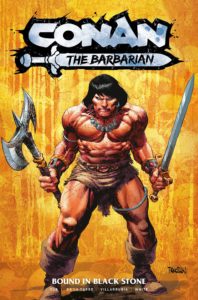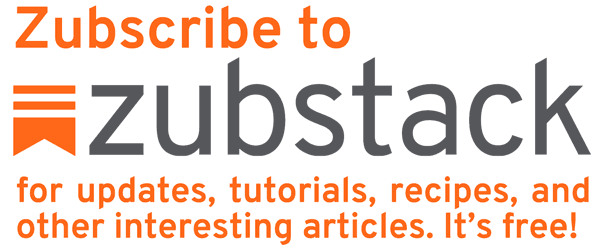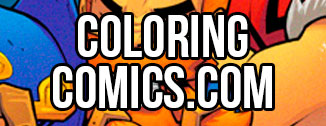One of my students from Seneca College (where I teach Animation courses) sent me two finished comic scripts for feedback. I don’t normally have time for this kind of critique, but we’ve talked quite a bit in the class about his desire to create comics and I wanted to encourage him to continue and push him to dig deeper. Here’s the feedback I sent, since I think a lot of the critique I write applies to new writers just starting out.
(Please do NOT send me your pitches/scripts for feedback. I really don’t have the time to review them. I did this as a personal favour for someone I know. I can’t spend all my time critiquing the work of strangers, especially with my insane work schedule right now).
—
Hi (name removed),
Sorry for the delay in getting back to you on this.
First off, congrats! Writing stories is tough and creating something new for yourself, especially the first few times, is always an intense uphill battle. You’ve finished a draft and that’s worthy of praise.
I read through both scripts and have quite a few thoughts, but I want you to know that I’m giving critique because I want your skills to improve and feel you’re capable of learning from the feedback rather than taking it personally. Tastes vary and what works for one person won’t necessarily work for another, but getting feedback and deciding what criticism is valid for yourself is key.
TITLE: I’ve been told by several people that titling a story something negative can create a subconscious negative impression of the story itself. I know what you’re going for with that title and it’s okay, but I thought I’d mention that right out the gate.
FORMAT: Many of your panel descriptions are too brief and far too generic. You don’t have to create flowery prose for a comic script, but you do need to have enough material in there for the artist (unless you’re drawing it yourself?) to draw inspiration from. Using terms like “the city”, “the bank”, “the police station” doesn’t give us a sense of the place or atmosphere. What kind of city is this? What impression do these places give? Rich, poor, modern, historic – what do we need to know about these places to help us visualize them?
Always impart relevant information the very first time it’s required. You have several pages mentioning the crowd of people at the start of the story before you include information on the fact that there are mutants mixed in with that crowd. You also don’t mention that the main hero guy is wearing tech on his wrist until later when he uses it.
Remember that ‘page turn reveals’ happen on even page numbers. You have several surprise/big reveal moments happening on odd numbered pages, which means that if this was a printed comic the reader would already have seen the big moment with their peripheral vision as they read along.
PLOT: Your core story (cops investigating a superhero murder, a lesser hero murdering the #1 hero they’re jealous of) is really, really well worn cliché ground that’s been done many times before. Every twist and reveal is exactly what I expected it would be as I was reading. There’s nothing new here that hasn’t been done in other places.
One of the toughest things about creating new stories and being inspired by all kinds of different sources is that your earliest stories tend to be Frankenstein monsters of all your influences as you learn about form and storytelling methods. In that way, that’s exactly what you’ve done here. It’s competent, follows narrative logic and all wraps up cleanly. I think you’ve learned a lot just by writing this… BUT, it doesn’t have anything new/different/unexpected to say about superheroes, murder, or police work. The tropes are locked in place and a reader who knows the genres you’re taking from enough to want to read this will also see nothing here to excite them.
RESEARCH: After reading the story I don’t get the impression that you’ve done any research at all in to how actual murder investigations are conducted. Go beyond base level clichés and easy 1 note solutions. Even if you don’t use 90% of the research you do on actual police work, you can enrich the story with a 10% extra dose of reality by doing the legwork and finding out about the real thing. Everything goes too smoothly for your loser cops. They stumble across evidence and solve everything without breaking a sweat. They don’t follow any kind of protocol and just sort of stumble along and have it all go their way.
Same thing with the technology. Everything comes across as generic and too simple. They don’t give a sense of high-tech/future tech or any kind of specific reality. They’re just sci-fi-style shortcuts without anything new/unexpected.
DIALOGUE: If the entire story played out in a generic way but the characters were unique and witty the story could still be entertaining. What really hurts it for me is that your dialogue is just as cliché as the plot. Every character says the expected thing in the blandest way possible to move the plot forward. Everyone’s dialogue is interchangeable. There’s no personality coming through in the way they speak or their attitudes. They spout plot facts and move to the next scene.
This is where research can really come into it. Enrich the characters with facts about their lives, the city the story takes place in, the things that are happening before the story ever began. How did they end up where they are in the police force? What do they do when they’re not working? Who are they and why should we care?
Read the dialogue out loud. Get into character and say it differently for each person. How can you make the characters more distinctive sounding? How can you strengthen their personalities through the way they speak?
Again, I get that you’re playing with clichés, but would it kill you to have a woman (multiple women) in this story anywhere? Two superheroes, multiple bank robbers, cops, the police chief… they’re all guys. Don’t fall into the toxic head space that guys are protagonists and women are background material. It’s bullshit.
THEME: What is the theme of the story? What are you trying to say above and beyond the basic sequence of events? Not every story will be deep and meaningful, but finding a message/theme can be a helpful way of pushing yourself with bigger ideas to help drive the story.
I’m not saying you have to force a ‘deep’ moral core into it by any means, all kinds of fun stories can be built on silly/slight premises, but right now there’s absolutely nothing beyond the sequence of events and those events are generic.
Say something you believe in, not just what you think the audience wants to hear.
I know the above may come across as harsh, but I really do want to reinforce that you’ve done a good thing by completing these scripts. The only way to really learn storytelling is to do it. Reading tutorials and how-to books can’t replace the work itself. These scripts are the building blocks towards your improvement and you should be proud of that, even when I’m cutting deep with my criticism. I hear far too many people tell me they want to write stories and create things and then lament that they never have the time or make other excuses. You’re doing it and that is worthy. Keep doing. Keep building, self analysing, and improving.





 Zub on Amazon
Zub on Amazon Zub on Instagram
Zub on Instagram Zub on Twitter
Zub on Twitter
This really struck me:
“Remember that ‘page turns’ happen on even page numbers.”
And your comment about big moments. I get so caught up in working out the story and the art, I have never put enough thought into this very important point. And I know that in my previous book I have big reveals that get “ruined” because of this.
I’m going to be extra careful about this going forward. Great tip!
Thank you for sharing this. I found it very relevant and extremely helpful. A lot of these ideas I had never considered and I have made many of the same blunders.
A lot of what I write has always felt “off” to me and I could never quite figure out why. I think I have a better understanding now.
Absolutely brilliant feedback that made be go back to my own stories with a more critical eye.
Sadly, I have fallen into these same traps.
Thanks for making me rethink (and hopefully up-level) my approach!
One question about the even numbered page reveals – does this apply even if you’re submitting your script and you know that ad inserts will be placed in the final product? I’m struggling through writing my first script, and I’m wondering how that all works.
It’s generally consistent with ad placements as well, though in the case of a specific project you could probably talk to the editor to find out where ad placements will go ahead of time or have them shifted a bit to accommodate the story if it was needed.
This is really good feedback and it brought the question to my mind of whether when writing page turns and thinking of page number a writer would have to consider any advertisements as they tend to be a page in size and obviously that would really mess things up.
In terms of description I know a few different writers have given mixed answers on how much they want the panel describing for the artist some people are specific down to th smallest line and others, even some at the highest level are incredibly rough, I think a good midway point there is to take a note from film scripts and sometimes give a brief description of the mood a scene and style at the beggining of each scene then when that’s out of the way the artist takes every detail in the panel descriptions afterwards from that using their own artistic judgement, it’s a good way to give the artist room to show their design talent as well
Reading this critique makes me think of the phrase “Hurts so good”. This would be a painful review to read about one’s own work, but it proves that the reviewer has your back. Once you get over the initial sting of being told your baby is ugly, you can work on the characters
This would be a painful review to read about one’s own work, but it proves that the reviewer has your back. Once you get over the initial sting of being told your baby is ugly, you can work on the characters 
 and on the ideas behind them.
and on the ideas behind them. 

Just remember that your reviewer is also human and has his/her own faults, like including emoticons from cave painting days on his comment section.
I’ve been working on a film script for the past two years, and I send it to a reading service (Coverage Ink) every time I have a new version. They return detailed notes, much like those above. It is $120 per review and I’ve submitted 5 drafts so far (you get a slight discount in resubmission). The first 4 drafts came back with a PASS rating, as do the vast majority of scripts. The most recent however came back with a RECOMMEND WITH RESERVATIONS, and was very well received. It took two years to get it there, and I have learned a huge amount about story and character along the way.
There are many services available that will give you unbiased feedback on your scripts and they are invaluable. It has been the best $500 I’ve ever spent, and I will be sending versions until the script comes back as a RECOMMEND (basically, saying that it is good enough to go to a studio, production company, literary agent, etc.). Sometimes we get too close to our work, and there is no replacement for having a pro read it and give constructive and honest criticism.
My God! I felt like you were talking to me. My first stories were 1-2 page strips for a fanclub newsletter, page turns weren’t an issue. I have to think about that on my planned webcomic, might as well be ready for a paper edition. Ive learned a lot about dialogue reading these that I wish I knew then.